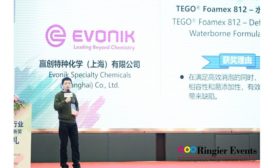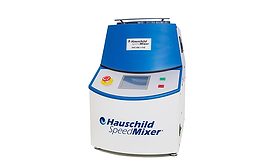Home » additives
Articles Tagged with ''additives''
Creating Differential Release to Avoid a Sticky Situation
Using methods to create a differential release force by changing and modifying RCAs can help guide formulators when choosing systems and avoid potential issues in end-use applications.
September 13, 2022
A Biocide for Many Seasons
An EPA-registered sodium benzoate is approved in the U.S. for use as an in-can biocide in waterborne adhesives, coatings, inks, homecare products, raw materials, and other applications.
April 7, 2022
Case Study
Mixing Carbon Blacks
The combination of centrifugal forces acting in different planes enables an efficient mixing process for Orion Engineered Carbons.
March 21, 2022
Core-Shell Masterbatches in Acrylate Monomer
New liquid tougheners offer multiple benefits for structural adhesives and thermoset systems.
February 21, 2022
Improved Rheological Profile and Stability of 2K Waterborne Polychloroprene Dispersion Adhesives
Microfibrillated cellulose (MFC) offers multiple benefits in waterborne polychloroprene adhesive formulations.
February 7, 2022
Keep the info flowing with our eNewsletters!
Get the latest industry updates tailored your way.
JOIN TODAY!Copyright ©2024. All Rights Reserved BNP Media.
Design, CMS, Hosting & Web Development :: ePublishing









